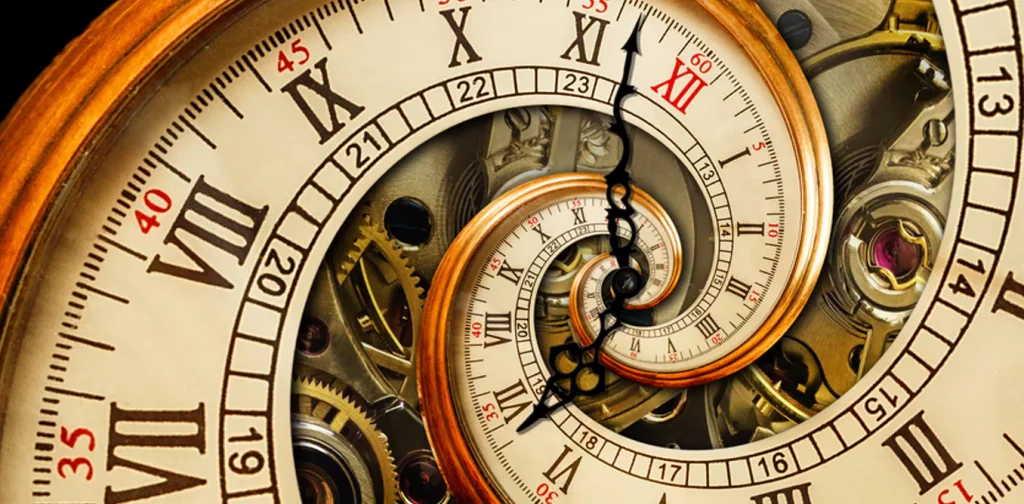How Long Till Your Current Job Ends?

The other day I was reading an article about the longevity of stardom. It asserted that stardom can only last for three years, after which stars can remain famous, but only as a kind of reminder of what people liked their three years of stardom.
I mentioned this to my wife, and we then considered various stars and the degree to which they reinvented themselves at the three-year mark: George Michael with three years of Wham, three years of Faith, three years of Listen Without Prejudice, then a kind of retirement; Bowie with three years of Ziggy/Aladdin Sane/Diamond Dogs, three years of Berlin, three years of Let’s Dance, then another kind of retirement; Eddie Murphy with three years of tyro parts like Beverly Hills Cop and 48 Hrs, three years of superstardom (Coming to America etc.), then an enforced sabbatical imposed by making shitty films no on wanted to see, and a late-career return with three years of dressing up in fat suits.
My wife went on to say that she’d read an article that said Baby Boomers tended to stay in their jobs for twelve years, while Gen X-ers were six years, Millennials were maybe three years, and Gen Z were looking like one-and-a-half.
I assume this reduction has something to do with the grotesqueries of late-stage capitalism, as it increasingly robs us of stability and security, the better to enrich the already copiously enriched. But that aside, our attachment to jobs, and by extension, corporations, is worth examining.
When I worked at AMV BBDO I remember having a chat with Mary Wear, who told me that she and her then-partner had a policy of staying at each job no longer than three years. She then split up with her partner, who may have have then pursued his own three-year stints at Mother and Lowe before founding his own agency. Mary, however, stayed at AMV for a good few years, but with different art directors, perhaps each partnering her for something like the magical three years. So it wasn’t necessarily the agency that dictated the length of cycle. Sometimes it was the art director.
I look back at my own career in this context and see quite a few three-year chunks: an art director, another art director, an agency I co-founded, a period of freelancing, ECDing Media Arts Lab in London, doing something similar but larger in LA, starting another agency etc.
It makes me wonder if there was some kind of natural progression to that time frame. Unlike Mary, I wasn’t conscious of making moves at the thousand-day mark, but perhaps there was a kind of corporate circadian rhythm that made me feel as if it were time to move on. Some of those changes were not by my choice, but is it possible that I was subconsciously sabotaging my circumstances, readying myself for the chrysalis and attendant reinvention?
Going back to the article my wife read, are we all leaning towards shorter stints at each place, or do we keep the timelength with which we started? There could be an arc to any situation, one that we adhere to without realising: a beginning, a middle and an end, with each new act feeling appropriate at a certain time. ‘Here comes year three. Time to start packing my parachute and putting out feelers for another position. Or to look for a new copywriter who can refresh me…’
It’s also possible that people get tired of people after a certain amount of time, and we collectively conspire to move on and be moved on. Or at least the excitement of the new is bound to fade over that time: just look at Madonna’s 3-year cycles, often starting with something provocative (the lyrics of Like a Virgin, the video for Like A Prayer, the Sex book) that echoed to faintness before she found another way to ‘shock’ us.
Does going over the allotted time simply lead to a kind of disappointment or failure? Do you have a different timeframe that dictates your career? Do you try to jump before you’re pushed?
I need more data. I’ll add a question to wherever I end up posting this, but do feel free to comment with your own experiences…
For each job move, the rule of thumb was: two years in your twenties*, at least three in your thirties and at least four in your forties.
First up, you’re learning your craft, gaining experience on a variety of accounts and building your network.
Then, it’s managing the average agency lifecycle of an account. Afterwards, you’re probably an expensive hire and hopefully with experience and commitments, you won’t have such itchy feet like you did in your 20s.
Remember that you can play the “Team Arsewipe has offered me 30% more with the promotion, but I’d really want to stay here” card once. One renowned political animal managed this twice, until their bluff was called and they were consigned to Housewife hell at an uncool agency for a couple of years.
That said, Mike Court (now on the big Cruise Liner in the sky) would change jobs as soon as the third year of Christmas Cards fell on his desk, regardless of it being the right one.
*.One spell measured in months is allowed; more than that is a bit suspect.
I think it doesn’t help that often creatives are stuck on the same accounts these days; there’s less variety (in my experience) than maybe there used to be. So you get bored, and want to move on.